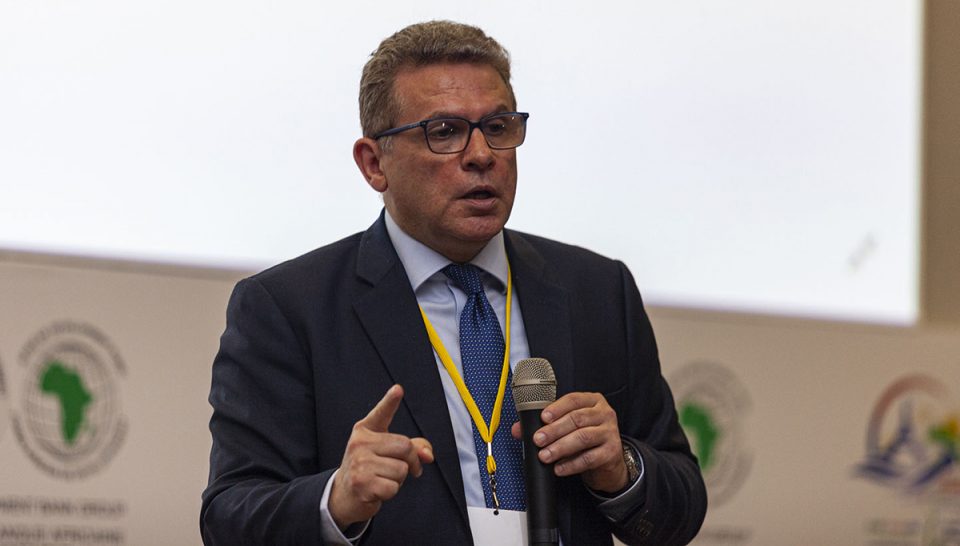COVIOD-19 pandemic-related disruptions have exposed Nigeria and other African economies’ overdependence on high commodity prices and exports of raw materials to fund basic government services.
Also, disrupted international supply chains and domestic lockdowns have created a storm in which income, goods or services stopped circulating, as economies came to a standstill, with the realisation that most African countries lack economic diversity and resilience.
Therefore, there is need for Nigeria and other African economies to focus on the fundamentals namely, producing more of what Africa consumes and consuming more of what Africa produces.
This, according to the Vice-President, Regional Development, Integration and Business Delivery, African Development Bank (AfDB), Khaled Sherif, would facilitate the development of supply chains that would offer small companies, and countries, opportunities to leverage their strengths and specialisations.
He said it will also help them feed into large value chain networks that create more value through production, processing and distribution, adding that it also means raising the standards within African supply chains to enable firms to produce world class industrial products.
Speaking with The Nation over the weekend, Sherif said achieving this required concerted effort to shore up manufacturing in Africa.
“The demand for manufactured goods is already there, as evidenced by the figures on the import of manufactures. Key to enhancing manufacturing in Africa is improving intra-African trade through the effective operationalisation of the African Continental Free Trade Area (AfCFTA), which would spur industrialisation,” he said.
According to him, the COVID-19 crisis has shown that enhanced industrial production in Africa is entirely achievable, especially as countries have struggled to source input and products from overseas.
“African industries do have the potential to respond to demand and, in fact, there is potential to leap-frog into advanced manufacturing and create the required capacity to produce quality world class goods,” Sherif added.
He noted that by extension, the pandemic has also exposed the vital importance of economic capacity not only for socio-economic development and industrialization, but to enhance resilience against crises and exogenous shocks that often occur without warning.
“Building on existing regional strategies for disaster risk reduction, there is also a need to factor in how pandemics present a multi-dimensional set of risks that require integrated responses to mitigate systemic risks,” the AfDB Vice President said.
He also said the capacity to locally manufacture the basics that are critical during emergencies-foodstuffs, clothing, shelter-and building the markets and supply chains needed to ensure a good supply of these, would contribute significantly to Gross Domestic Product (GDP), income and job creation.
The AfDB chief, however, pointed out that building the markets and supply chains needed to ensure Africa can provide for itself, including during emergencies, will not be difficult. According to him, Africa already has several agricultural commodities on which regional value chains can be constructed.
He said these alone would contribute significantly to GDP, incomes and job creation while also paving a shift into the manufacture of light intermediate goods (e.g., wood products, textiles and leather).
“As Africa builds more critical mass, the continent would increasingly move investment into distribution, data transmission and services to ensure these goods make it to market.
“Financing and insurance are needed across the spectrum, as are all the skills of the youth and specialists who can help manage the IT and logistics that leverage digital capabilities.
This will create high paying, skilled jobs for Africa’s youth. In other words, there is a need to take a horizontal view of value creation and maximize opportunities to generate these in Africa, for African economies, African businesses, African workers and African consumers,” he said.



